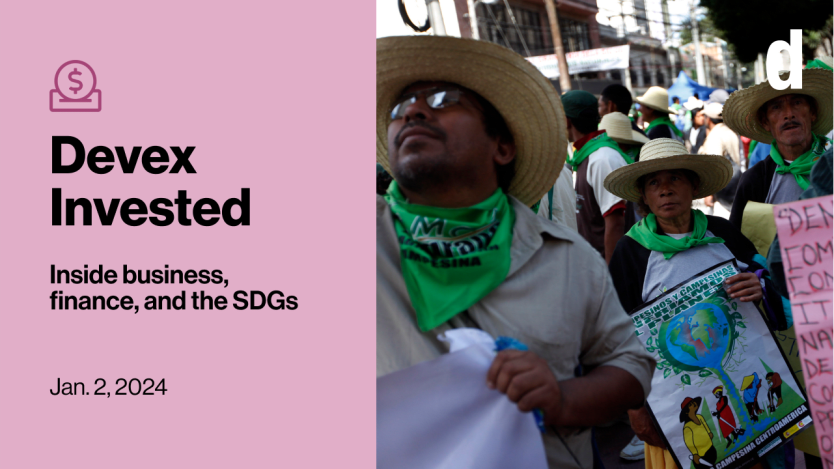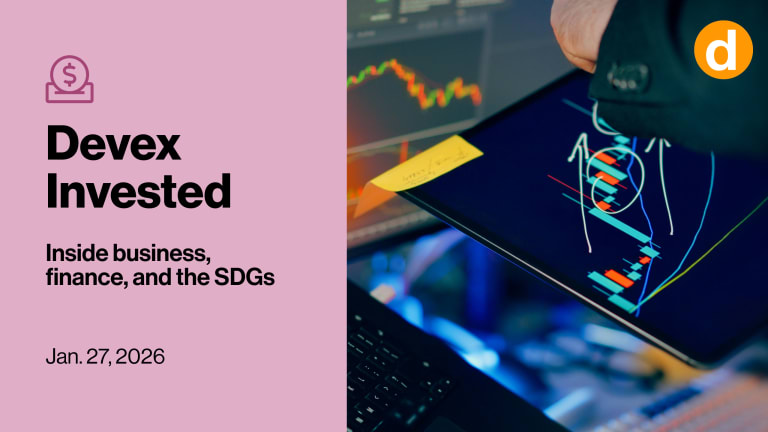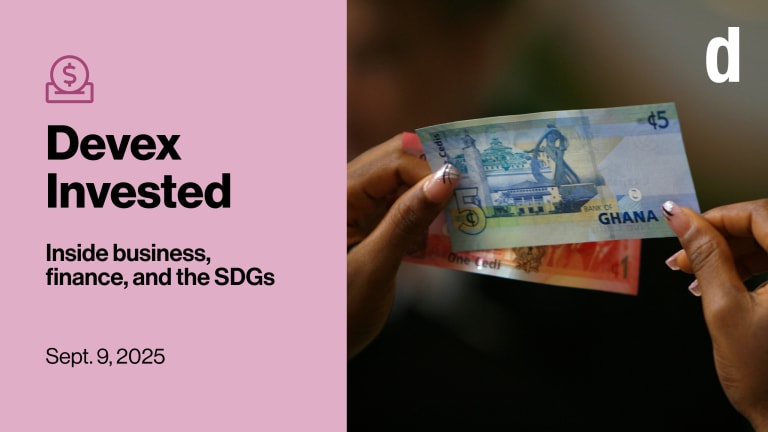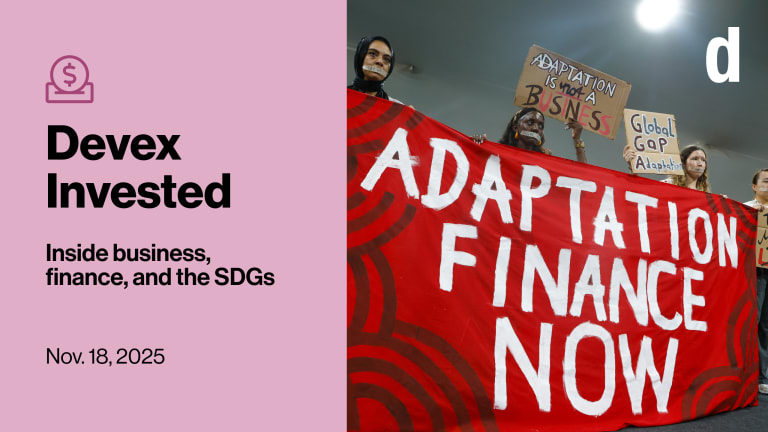
Happy New Year! I’ve spent the past week baking an assortment of cookies and treats. I’m now ready to dive back into work — and contemplate what the year ahead might bring in the realm of development finance.
We’ll be tracking the continued changes at development finance institutions, debates about what’s going well and what’s not, and how the reform of multilateral development banks is playing out. What are you expecting? What should we cover in the year ahead? Please let us know by emailing me at adva.saldinger@devex.com.
To kick off the year, I have a story about the first time the International Finance Corporation settled a lawsuit brought by a community alleging that it was harmed by an investment.
• It stems from a 2009 IFC investment to Corporación Dinant, a palm oil company in Honduras. In the lawsuit, a group of Honduran farmers allege that Dinant forced people off their land, tortured, kidnapped, and murdered community members; and claim that IFC’s Asset Management Company profited from those actions.
• Dinant tells Devex that it denies all of the allegations in the lawsuit, including charges of murder, which it called “completely meritless,” and said it is committed to respecting human rights.
• The settlement, once approved by the court, would have AMC pay $5 million, most of which will go to support community programs that will be managed by an independent third party. An IFC spokesperson tells me that neither IFC nor AMC “has admitted to any wrongdoing or agreed to any remedial action as part of the settlement agreement.”
• While the farmers are “happy that there has been a resolution,” they also think it took too long and never should have had to go to court, Marissa Vahlsing, one of the EarthRights International lawyers representing the farmers, tells me.
• This settlement comes at a time when IFC is adopting a new approach to remedial action which will govern what happens when something goes wrong with its investments. The draft policy has come under fire from advocates who say it lacks critical details, doesn’t include a mechanism for IFC to pay for harm, and is vague on which “exceptional” circumstances may result in remedies.
Read: Honduran farmers, IFC settle suit alleging violence linked to investment
ICYMI: IFC policy for when projects cause harm lambasted as letdown
What’s ahead: The World Economic Forum annual meeting is just around the corner, and for our Pro members, we have a rundown of key moments in global development we’re following this year.
+ Join us on Jan. 10 for the first Devex Pro event of the year — an “ask me anything” session with our president, Raj Kumar, and get exclusive insights into the key global development trends to expect in 2024.
Not a Pro member yet? Sign up for a 15-day risk-free trial and access all our exclusive content.
By the numbers
$41 billion — That’s the size of the U.S. International Development Finance Corporation’s portfolio across 112 countries. That’s up significantly from when the agency was founded in 2019; its predecessor had a $29 billion cap.
$669 billion — That’s how much money flowed in remittances to low- and middle-income countries in 2023, up about 3.8% from the previous year. Not quite the growth seen in the past two years, but still an upward trend, according to new World Bank statistics.
Making it happen
The COVID-19 pandemic saw many donors emphasize the need to boost Africa’s pharmaceutical manufacturing capacity. But Devex’s senior global health reporter Sara Jerving finds that there are still myriad obstacles to getting more medicines produced in Africa, for Africans.
From competing on price with foreign companies that benefit from economies of scale to a disjointed continental regulatory regime, and accessing affordable finance, major hurdles remain. But there is optimism the continent is heading in the right direction, Sara writes, with a path that includes taking a regional approach to manufacturing, integrating markets, developing the workforce, and creating a local value chain.
Read: Why African pharmaceutical manufacturers struggle for sustainability (Pro)
System failure
In December, the International Monetary Fund board of governors approved a 50% quota funding increase which it says will shift its reliance more to permanent resources rather than borrowed funds. What it didn’t do is change the quotas or shares that different countries have — an issue that has become politically contentious, particularly as the United States looks to prevent China, India, and Brazil from increasing their shareholding.
But Emma Burgisser and Chiara Mariotti argue that IMF’s governance is out of date and concentrates too much voting power in the hands of higher-income countries. “This system further concentrates the power imbalances that characterize the global economy,” they write in an opinion piece for Devex.
There were hopes that the recently completed quota review would make changes but they write that it “spectacularly failed.”
Opinion: IMF rules continue to be rigged against the world’s poorest
Debt redux
Many countries will need to continue to contend with weighty debt burdens this year. But could there be some lessons in the recently completed debt relief for Somalia under the Heavily Indebted Poor Countries Initiative? HIPC was designed for another era of debt distress but helped reduce Somalia’s external debt from about $5.3 billion in 2018 to $700 million
Alexia Latortue, assistant secretary of international trade and development for the U.S. Treasury Department, dives into the details of the complex effort to reduce debt in the climate-vulnerable country in an opinion piece for Devex.
“It shows that when we move forward together, with commitments and support linked to reforms, all can benefit. With clear rules and a common understanding, we can leverage goodwill to deliver transformational changes that translate into benefits that can change people’s lives,” she writes.
Opinion: How Somalia’s historic debt relief achievement came about
What we’re reading
Open Society Foundations is expected to reveal its new structure in 2024. How will it work? [Devex Pro]
Argentina pulls out of plans to join the BRICS bloc. [BBC]
West African Development Bank announces that Arab Bank for Economic Development in Africa acquired an equity interest. [African Business]
What does climate vulnerability mean for the Caribbean? [Devex]
Ethiopia becomes Africa's latest sovereign default. [Reuters]








